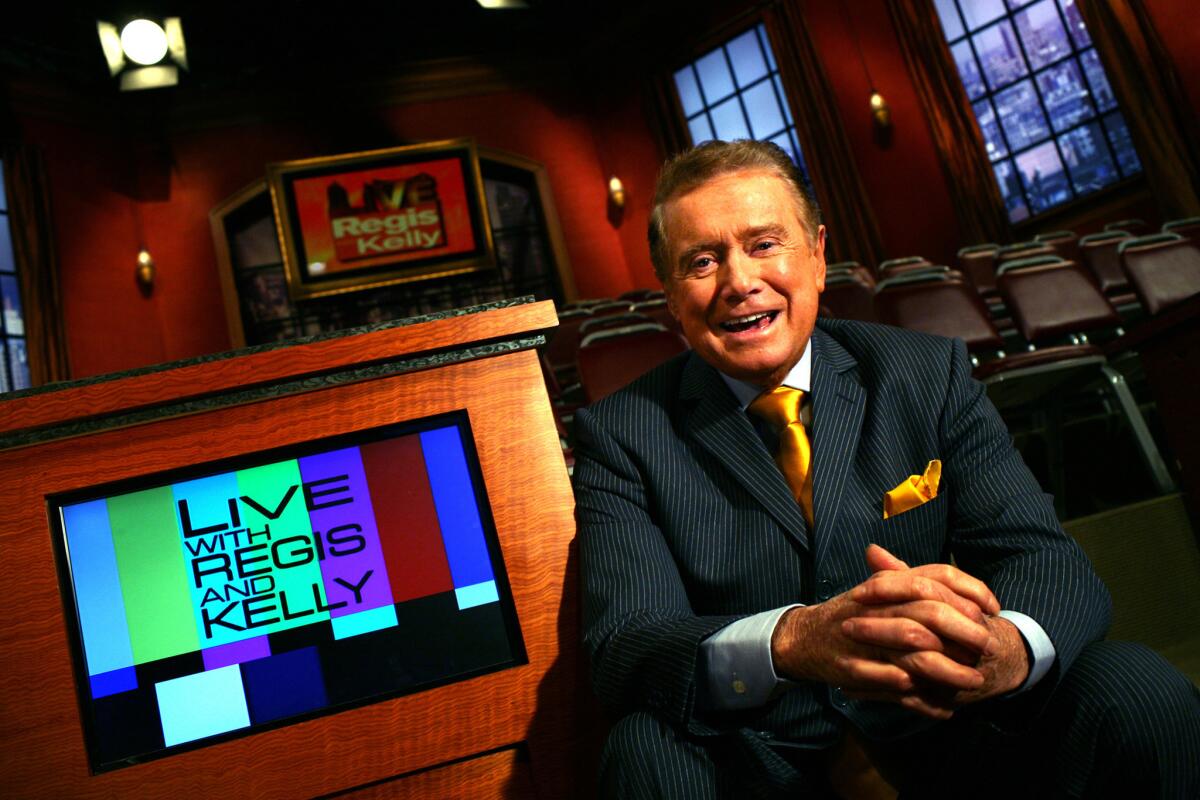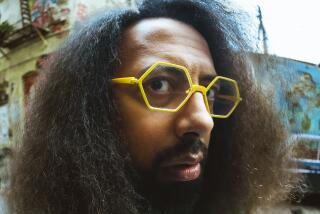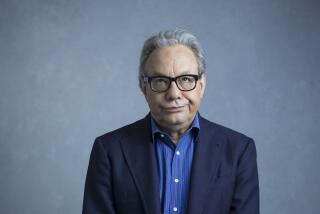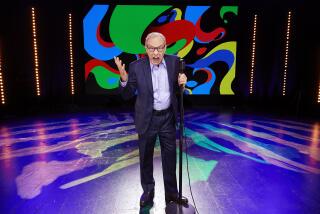Regis Philbin, effervescent TV everyman, dies at 88

- Share via
For the record:
1:04 p.m. July 28, 2020July 28, 1:05 p.m.: A previous version of this story said that Philbin was named after a Catholic university. He was named after Regis High School, a Jesuit school his father attended in Manhattan.
Morning after morning, Regis Philbin would help America brace itself for another workday with a contagious blend of enthusiasm, barbed humor and laments about the mundane ups and downs of everyday life — a visit from his mother-in-law, another tough loss for his bad-luck New York Mets, the wallet he accidentally left in a rental car.
As other morning television personalities came and went, Philbin reigned for decades as the comfortable and sometimes cantankerous guest in living rooms across the country, hosting “Live” first with Kathie Lee Gifford and, later, Kelly Ripa. The show was unrehearsed, unscripted and often veered wildly depending on whatever perceived indignity or slight had come his way. Studio audiences related to it all.
Philbin earned Emmy nominations by the armful, hosted New Year’s Eve specials, rode in parades, set a record for the most face-time hours on television and helped reinvigorate prime-time game shows with “Who Wants to Be a Millionaire,” a runaway hit. When he stepped away for good in 2011, it was an emotional goodbye that tugged on many viewers.
In poor health in recent years, Philbin died Friday of natural causes, his family said in a statement provided to The Times. He was 88.
“Our hearts are broken to learn the news about Regis’ passing,” a representative for “Live” said in a statement to The Times. “Regis originated ‘Live’ as a local New York broadcast back in 1983, and for more than 28 years he poured his heart and soul into the show. Many of the members of our staff began their careers at ‘Live’ with Regis, and were lucky enough to learn from a master broadcaster.”
Philbin’s family thanked his fans and supporters.
“His family and friends are forever grateful for the time we got to spend with him — for his warmth, his legendary sense of humor, and his singular ability to make every day into something worth talking about,” Philbin’s family said.
Known affectionately as “Reege” and “Outregis,” Philbin got his start in television as a page at NBC Studios in New York. He made a name for himself guest-hosting “The Tonight Show” and serving as comedian Joey Bishop’s sidekick and announcer on “The Joey Bishop Show” in the 1960s. “Late Show” host David Letterman regarded Philbin as “a master communicator” and had him on his show more than any other guest in the show’s history.
In a 2000 Times interview, when asked what made him likable, Philbin seemed embarrassed by the question.
“I don’t know. It’s a hard thing to answer about yourself,” he said. “I guess it’s good genes. My parents brought me up well, to have pleasure when making people happy.”
Then, he seemed to pause and reconsider, exclaiming (as he was wont to do): “Oh, no! I can see the headlines now! ‘Regis Thinks He’s a Nice Guy! Who Does He Think He Is?!’”
But it was that avuncular charm that endeared him to legions of fans who tuned in for his unscripted tête-à-têtes each morning as the host of ABC’s “Live!” with co-hosts Gifford and Ripa. To preserve authenticity and ensure spontaneity during their conversations, Philbin refused to talk with his co-hosts before they went on the air.
The show’s executive producer said Philbin’s on-screen persona was not an act.
“People probably think Regis turns it on for TV,” Michael Gelman said in 2004. “They think they are seeing ‘TV Regis.’ Regis on TV is Regis off TV.”
At age 80, and after more than 56 years on TV in Los Angeles and New York, Philbin departed “Live!” during an emotional finale. Some said Philbin was finally tired of the daily grind and the early hours and wanted an easier life. He was replaced by the affable NFL player-turned-analyst Michael Strahan, who co-hosted with Ripa until he bowed out in 2016.
Health issues dogged Philbin since the 1990s. In 1993, he underwent emergency angioplasty to unblock a heart vessel. In 2007, he had to have triple-bypass heart surgery. Two years later, he had hip replacement surgery, followed by the removal of a potentially fatal blood clot in 2010. He struggled with high cholesterol, blood pressure and severe acid reflux.
Philbin, who co-hosted New Year’s Eve spectacles and was a Rose Parade grand marshal, earned 21 Daytime Emmy nominations, winning four and a lifetime achievement award. He was such a consistent presence on television that, in 2004, he set the Guinness World Record for the most face time on camera when he logged his 15,600th hour.
Philbin also amassed a hefty prime-time following on ABC’s wildly popular game show “Who Wants to Be a Millionaire,” which he hosted for three seasons starting in 1999.
He said he took the “Millionaire” gig because his wife thought he needed something to fill his afternoons. “She was out many afternoons, so she said, ‘Why don’t you find something to do?’ I thought it might be something to kill, say, one afternoon a week. I didn’t anticipate the hit that ‘Millionaire’ was going to be.”
And a hit it was: Even his monochromatic shirt-and-tie combo became famous. More than just a host, Philbin was a facilitator of dreams, a confidant and, often, therapist. Still, with small fortunes on the line, he could raise waves of self-doubt in the most confident competitors — and at-home audiences — when he inquired, “Is that your final answer?”
“It seems that there is nothing that Philbin can’t do to entertain us. He is the Millennial Man, as ubiquitous as mosquitoes at a summer camp-out,” Times contributor Robert Strauss wrote in 2000. “Not since the heyday of test patterns has one visage taken up so much TV time.”
Philbin wrote two memoirs, “I’m Only One Man!” and “Who Wants to Be Me?” that recalled his upbringing in the Bronx and credited his parents — first-generation Americans with roots in Ireland and Italy — with his rich gusto for telling stories.
He was born Regis Francis Xavier Philbin in New York on Aug. 25, 1931, named after Regis High School, a Jesuit school his father attended in Manhattan. After graduating from Notre Dame in 1952, he spent two years in the U.S. Navy as a supply officer.
While based in San Diego, he started reading about the opportunities in the still-evolving world of television. On his last day in the service, a tough-talking major asked him what he was going to do with the rest of his life.
“I’d like to go into television,” he said hesitantly, “but I don’t know what I could do. I’m not a comedian. I’m not a singer. I’m not a dancer. I’m none of these things but still I’d like to go into it but I don’t know if I have any talent. [The major] said, ‘Don’t you know you could have anything you want in this life, you’ve only got to want it bad enough. Now do you want it?’... and I said, ‘Yes, sir. I want it.’”
So Philbin put out feelers for TV jobs in Hollywood, but when nothing came of it, he returned to New York and became an NBC page, the bottom rung of the television ladder. Six weeks later, he was hired as a stagehand at KCOP-TV in L.A. His next stop was back in San Diego, where he worked in radio and local television news before hosting his own program, “That Regis Philbin Show,” in 1964. It was pulled after just eight episodes.
His first prolonged national exposure came when he was tapped by ABC in 1967 to be Joey Bishop’s sidekick, following the dynamic Johnny Carson-Ed McMahon “Tonight Show” model in late night.
“We were off to a slow start and couldn’t catch [Carson] in the ratings,” Philbin told the Archive of American Television. “I was hearing things in the hallway that maybe I was to blame.” So, he walked off the show, hurt that he might be holding back its success. However, he was asked to return a week later.
The show lasted 33 months, and when Bishop quit before the end of the run, Philbin took over as host for the last several weeks of the show, which went off the air in 1969.
The next year, he married Joy Senese, who was an occasional host on “Live!” and also hosted home improvement shows. Philbin and Senese had two daughters. An earlier marriage to Catherine “Kay” Faylen ended in divorce in 1968. Together, they also had two children.
After “The Joey Bishop Show” went off the air, Philbin became a host of KABC-TV’s perennially top-rated “A.M. Los Angeles,” working with co-hosts Sarah Purcell and then Cyndy Garvey during a six-year run. He left the show when he teamed with Mary Hart on his own national NBC talk show, “The Regis Philbin Show,” which aired on weekday mornings from 1981 to 1982 and where he developed his signature repartee. The show reportedly didn’t have the funds to hire a writing staff, so Philbin would ad lib during a “host chat” segment, running though his daily activities and personal life. But the show flopped and was canceled after four months.
His fortunes changed in 1983 when he reteamed with Garvey in New York on ABC’s “The Morning Show,” the forerunner of “Live!” When Gifford, the wife of the late NFL legend Frank Gifford, finally settled into the chair next to Philbin, ratings improved and the “Morning Show” was renamed “Live! With Regis and Kathie Lee” and was syndicated nationally.
The twosome became an establishment and the opening gab session, which generally centered on Philbin’s stories about what happened to him at home or out and about the night before, became a trademark. Everyone and everything — including his wife, teenage daughters, newspaper reporters and especially his perky blond co-host — were fair game for his brand of ribbing.
“Everything on television these days is either written or over-rehearsed and there isn’t room for the smaller things in life that everybody goes through, like visits from your mother-in-law or the kids bringing home stray cats,” Philbin told The Times in 1988. “TV usually thinks those things are too insignificant to be interesting to anybody. But that’s all I’ve got. And it may sound a little hokey, but people relate to that, and they find those small little stories so appealing that they want to tune in the next day to find out what happened last night.”
Philbin and Gifford came across as a pair of friends unafraid to have fun at the expense of the other. He teased her about her hair, clothes and husband. She accused him of spitting all over her when he got worked up.
“The charm of Regis is he is still the same scared and shy little Catholic boy afraid to knock on the door of the radio station at Notre Dame to ask for a job,” Gifford wrote in the introduction of Philbin’s 1995 autobiography “I’m Only One Man!” “He’s still the same kid who got dumped after the prom. He’s still the same young man from the Bronx whose mother used to tell him, ‘The poorhouse is just around the corner, Mr. Big Shot’ (even though the street is now called Regis Philbin Avenue).”
Though she became a household name as part of the duo, Gifford left “Live!” in 2000. After trying out several co-hosts, Philbin teamed up with Ripa. The partnership last more than a decade before Philbin decided to step aside.
“There is a time that everything must come to an end for certain people on camera, especially certain old people,” he joked at the time. When Ripa reminded him that the show would go on after he left, he deadpanned: “You mean the show isn’t wrapping up?”
His departure was believed to be the result of a contract dispute and there were rumors he was being asked to take a pay cut. Philbin dumped his longtime agency a day after announcing his plans to leave “Live!” but denied the assertion, saying he’d actually made up his mind to leave “a long time ago.”
Philbin later told Larry King that he was never asked to reappear on the show.
“She got very offended when I left. She thought I was leaving because of her,” Philbin said of Ripa, and added, “I was leaving because I was getting older and it wasn’t right for me anymore.”
Still, he missed his hosting duties.
“I don’t know. How often would it be? Would it be every night? Every day?” Philbin mused when King asked him about returning. “I do miss it. There are times when I really miss it and wish I’d never stopped. But, you know, I just figured it was time to let go.”
But Philbin never disappeared completely. He didn’t fully retire after signing off “Live!” Philbin returned to television frequently, hosting and contributing to a bevy of projects. He was a familiar face on NBC’s “Today,” reuniting with Gifford when he joined the morning show as a contributor in its fourth hour in 2015.
Philbin is survived by his wife of 50 years, Joy Philbin; three daughters, J.J., Joanna and Amy; and four grandchildren.
More to Read
Start your day right
Sign up for Essential California for the L.A. Times biggest news, features and recommendations in your inbox six days a week.
You may occasionally receive promotional content from the Los Angeles Times.







